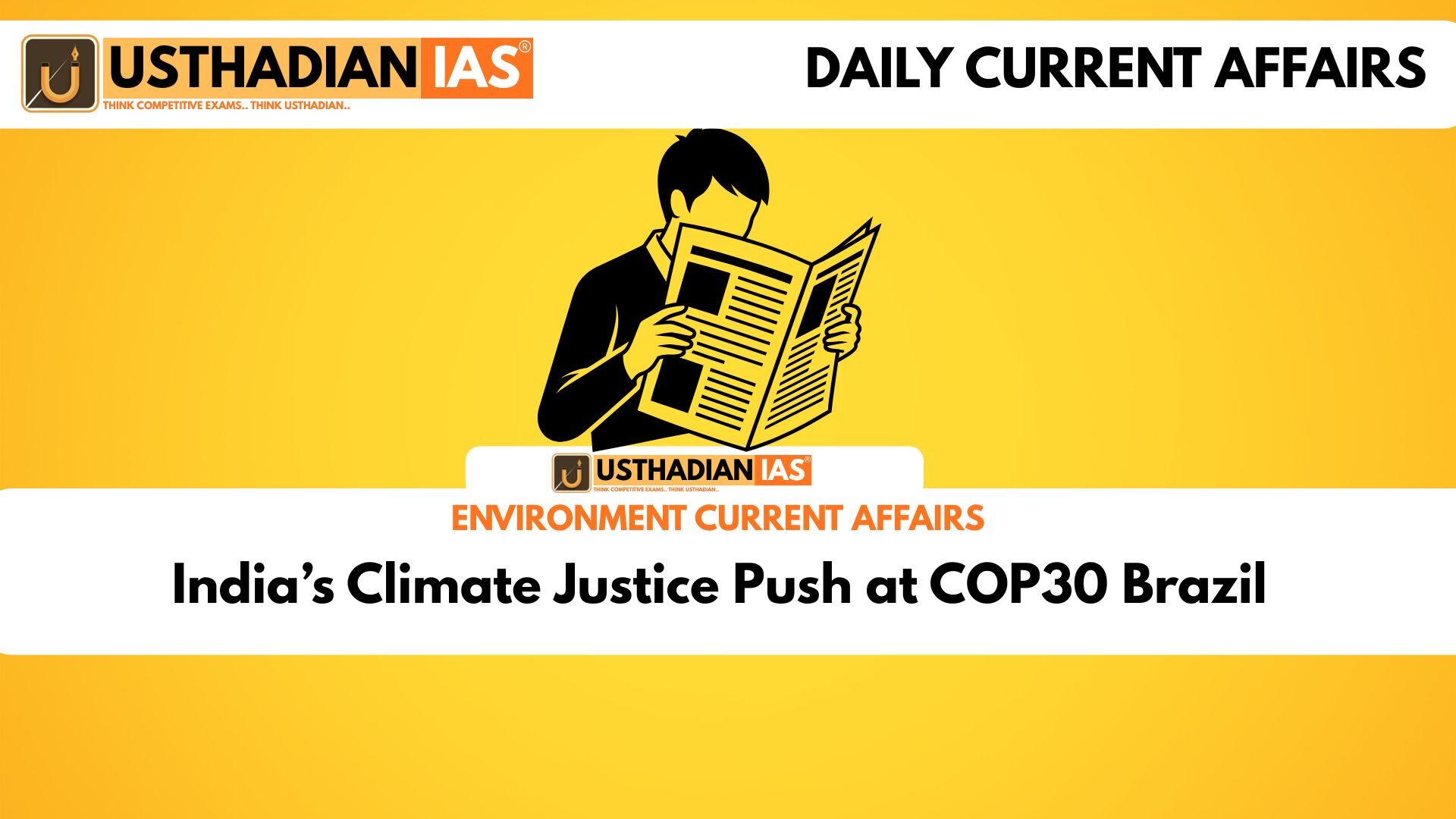Brazil Hosts COP30
India’s Climate Justice Push at COP30 Brazil: The 30th UN Climate Change Conference (COP30) will take place in Belém, Brazil, in 2025 — marking ten years since the historic Paris Agreement. Brazil aims to highlight its achievements in reducing deforestation and its ambitious green finance plans. The conference theme focuses on translating climate promises into measurable implementation.
Static GK fact: The Paris Agreement was adopted at COP21 in 2015 in Paris, France, setting the global framework to limit warming to well below 2°C.
Brazil’s Forest Fund Proposal
Brazil, the fifth-largest emitter of greenhouse gases, achieved a 17% emission reduction in 2024, its sharpest fall in 16 years. The decline was largely due to strict control of deforestation in the Amazon and Cerrado regions.
At COP30, Brazil will propose a “Tropical Forest Forever Fund”, a multilateral financing mechanism to reward tropical nations for conserving forests. This initiative reflects President Luiz Inácio Lula da Silva’s vision to make COP30 a “COP of Implementation,” ensuring lasting funding commitments instead of short-term pledges.
Static GK Tip: The Amazon rainforest spans nine countries, with Brazil containing about 60% of its total area.
India’s Focus on Equity and Adaptation
India’s delegation will prioritise equity, adaptation, and technology access over new emission-cutting obligations. Officials emphasize that adaptation goals must align with national circumstances and be supported by adequate finance and capacity-building.
India will also seek greater flexibility in shaping the Global Goal on Adaptation (GGA) and ensure that data sovereignty of developing nations is respected.
Static GK fact: India ranks third globally in renewable energy capacity after China and the United States.
The New Collective Quantified Goal on Finance
A central discussion at COP30 will revolve around the New Collective Quantified Goal (NCQG) on climate finance, replacing the earlier $100 billion annual target — which has remained unmet for over a decade.
India insists the new goal must ensure predictable, transparent, and non-debt-creating finance for developing countries. This stance reflects India’s long-standing view that equitable access to finance and technology is essential for effective climate action.
Static GK Tip: The original $100 billion climate finance goal was agreed upon during COP15 at Copenhagen (2009) and was supposed to be achieved by 2020.
Shared Vision for Sustainable Lifestyles
Brazil’s concept of a “Global Ethical Stocktake” — combining science, ethics, and sustainable living — aligns with India’s Mission LiFE (Lifestyle for Environment) campaign. Both countries advocate behavioural transformation and sustainable consumption as part of global climate responsibility.
India’s renewable energy capacity has increased from 81 GW in 2014 to 236 GW in 2025, demonstrating strong progress in green growth despite limited funding access.
At COP30, India’s message will highlight that fairness, shared responsibility, and inclusive access to finance and technology must guide global climate implementation in the coming decade.
Static Usthadian Current Affairs Table
India’s Climate Justice Push at COP30 Brazil:
| Topic | Detail |
| COP30 Venue | Belém, Brazil |
| Significance | 10 years since Paris Agreement |
| Brazil’s Emission Reduction | 17% fall in 2024 due to lower deforestation |
| Key Brazilian Initiative | Tropical Forest Forever Fund |
| India’s Core Agenda | Adaptation, finance, technology transfer |
| Key Finance Mechanism | New Collective Quantified Goal (NCQG) |
| Historical Finance Target | $100 billion goal (Copenhagen, 2009) |
| Indian Campaign | Mission LiFE (Lifestyle for Environment) |
| India’s Renewable Energy (2025) | 236 GW |
| Brazilian President | Luiz Inácio Lula da Silva |








